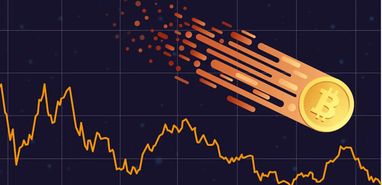
The cryptocurrency market faced a tumultuous day, leading to massive losses that have investors fearing the worst. This raises concerns that the bull cycle might prematurely end. While it’s unlikely to occur, it remains a persistent worry among investors. As of writing this article, Bitcoin’s price is declining significantly.
Over the past week, the leading cryptocurrency experienced a drastic decline. The token’s price dropped over $17,000 within this period. Just last Sunday, Bitcoin had surpassed the $70,000 barrier, and its recent low was $52,500.
The selling pressure among investors is one of the strongest this year, sparking fears about the bull cycle’s future. If this truly marks the end, it could be the most disappointing post-halving bull run in the cryptocurrency’s history.
This is highlighted by Pierre Rochard, head of research at the mining firm Mob Stages, in a post on X. He presents a chart illustrating Bitcoin’s price cycles following halving dates. As mentioned earlier, it’s still too soon to declare the bull run over.

Bitcoin’s Price Decline Signals a Delicate Week Ahead
Just past midnight on Monday (GMT), Bitcoin’s price decline worries investors. With Western markets, particularly New York, yet to open, the sentiment is that digital currencies will continue to fall.
As a result, the Tokyo stock market opened with a significant drop (-5%) at the time of writing. This decline heightens fears that enthusiasm for investing in risk assets is very low.
Several factors potentially contributed to this downturn, including the liquidation of spot Bitcoin ETF shares. Additionally, it’s essential to highlight the alarming macroeconomic data from the U.S. economy, with concerning figures in new payrolls and unemployment rates.
This has reignited recession fears in the U.S., suggesting that the anticipated soft landing might end in a hard landing, leaving investors on edge.
It’s crucial to remember the strong correlation between the cryptocurrency market and traditional financial markets. Consequently, macroeconomic data impacts both significantly. The labor market is currently a major concern, and the effects of the latest July data may not yet be fully realized.








By Andrej Kovacevic
Updated on 5th August 2024